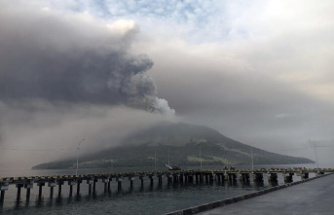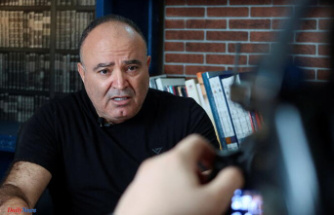How much control presidents have over the economy is always a matter of debate. Despite the fact that President Donald Trump bills himself as a savvy businessman, questions abound over whether his policies will be good for business, and by extension, New York.
Apart from being unpredictable (not a favorite quality among the corporate crowd), the former reality-television star thrives on—and encourages—conflict and drama. Just ask Macy’s, which is enduring two Trump-inspired boycotts: the one the president himself initiated when the retailer dumped his apparel brand in 2015 and the grassroots #GrabYourWallet campaign calling on shoppers to bypass the store until it drops the Ivanka Trump brand.
Wall Street has sustained a historic stock market rally, but Goldman Sachs recently said the gains could reverse themselves if the White House is unable to roll back financial reforms quickly.
article continues below advertisementNow a major concern is the degree to which Trump and Republican lawmakers curb immigration. That’s of particular significance to New York, where immigrants have resurrected neighborhoods while fueling new businesses—from restaurants on Staten Island to startups in the Flatiron District—at a higher rate than native-born Americans. The foreign-born also make up nearly a third of the city’s “creative class,” or knowledge workers, said New York University’s Steven Pedigo.
Trump’s broadly conceived travel ban and new, stepped-up immigration-enforcement measures target those here illegally but could wind up having long-term consequences for the economy.
“What’s important is the signal that sort of policy sends to the rest of the world,” said Ralph McLaughlin, chief economist of residential real estate site Trulia. “Are we a country that will inspire people to come here?”
One irony is that a president who made his name in New York real estate could end up weakening demand in the housing market. In the metro area, for example, 34% of homeowners are foreign-born. New York’s growth depends largely on immigrants, who in turn buy products Americans sell. It’s too soon to know the effects, but that hasn’t stopped some from worrying.
“It would be naive to think [the policies] will have no impact on the city,” said Jonathan Miller, CEO of real estate consulting firm Miller Samuel. “It’s just a matter of whether it’s modest or significant.”
How much control presidents have over the economy is always a matter of debate. Despite the fact that President Donald Trump bills himself as a savvy businessman, questions abound over whether his policies will be good for business, and by extension, New York.
Apart from being unpredictable (not a favorite quality among the corporate crowd), the former reality-television star thrives on—and encourages—conflict and drama. Just ask Macy’s, which is enduring two Trump-inspired boycotts: the one the president himself initiated when the retailer dumped his apparel brand in 2015 and the grassroots #GrabYourWallet campaign calling on shoppers to bypass the store until it drops the Ivanka Trump brand.
Wall Street has sustained a historic stock market rally, but Goldman Sachs recently said the gains could reverse themselves if the White House is unable to roll back financial reforms quickly.
Now a major concern is the degree to which Trump and Republican lawmakers curb immigration. That’s of particular significance to New York, where immigrants have resurrected neighborhoods while fueling new businesses—from restaurants on Staten Island to startups in the Flatiron District—at a higher rate than native-born Americans. The foreign-born also make up nearly a third of the city’s “creative class,” or knowledge workers, said New York University’s Steven Pedigo.
Trump’s broadly conceived travel ban and new, stepped-up immigration-enforcement measures target those here illegally but could wind up having long-term consequences for the economy.
“What’s important is the signal that sort of policy sends to the rest of the world,” said Ralph McLaughlin, chief economist of residential real estate site Trulia. “Are we a country that will inspire people to come here?”
One irony is that a president who made his name in New York real estate could end up weakening demand in the housing market. In the metro area, for example, 34% of homeowners are foreign-born. New York’s growth depends largely on immigrants, who in turn buy products Americans sell. It’s too soon to know the effects, but that hasn’t stopped some from worrying.
“It would be naive to think [the policies] will have no impact on the city,” said Jonathan Miller, CEO of real estate consulting firm Miller Samuel. “It’s just a matter of whether it’s modest or significant.”
A version of this article appears in the February 27, 2017, print issue of Crain's New York Business as "Trump's business impact".
Sign up for our FREE daily email newsletter. A summary of the day's top business and political headlines from the newsroom of Crain's New York Business.
More Newsletters ›
Our editors found this article on this site using Google and regenerated it for our readers.












